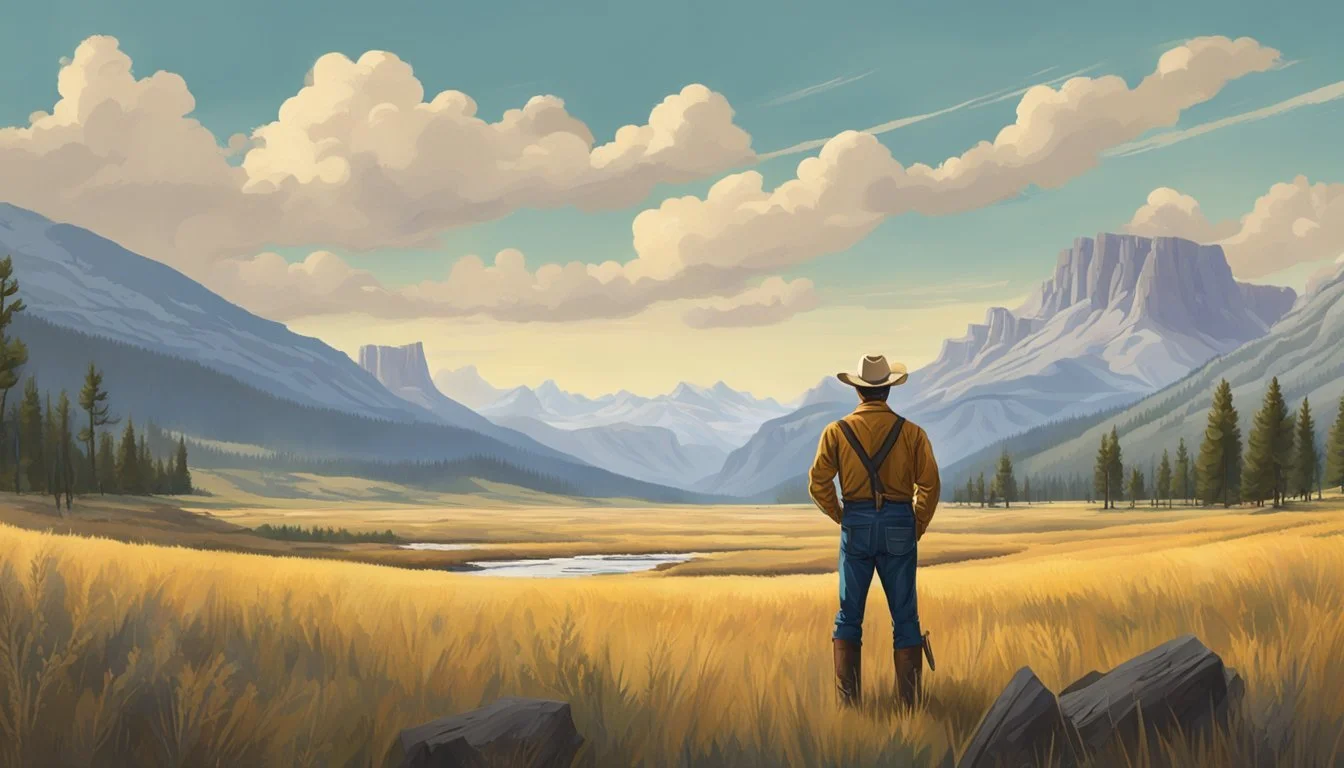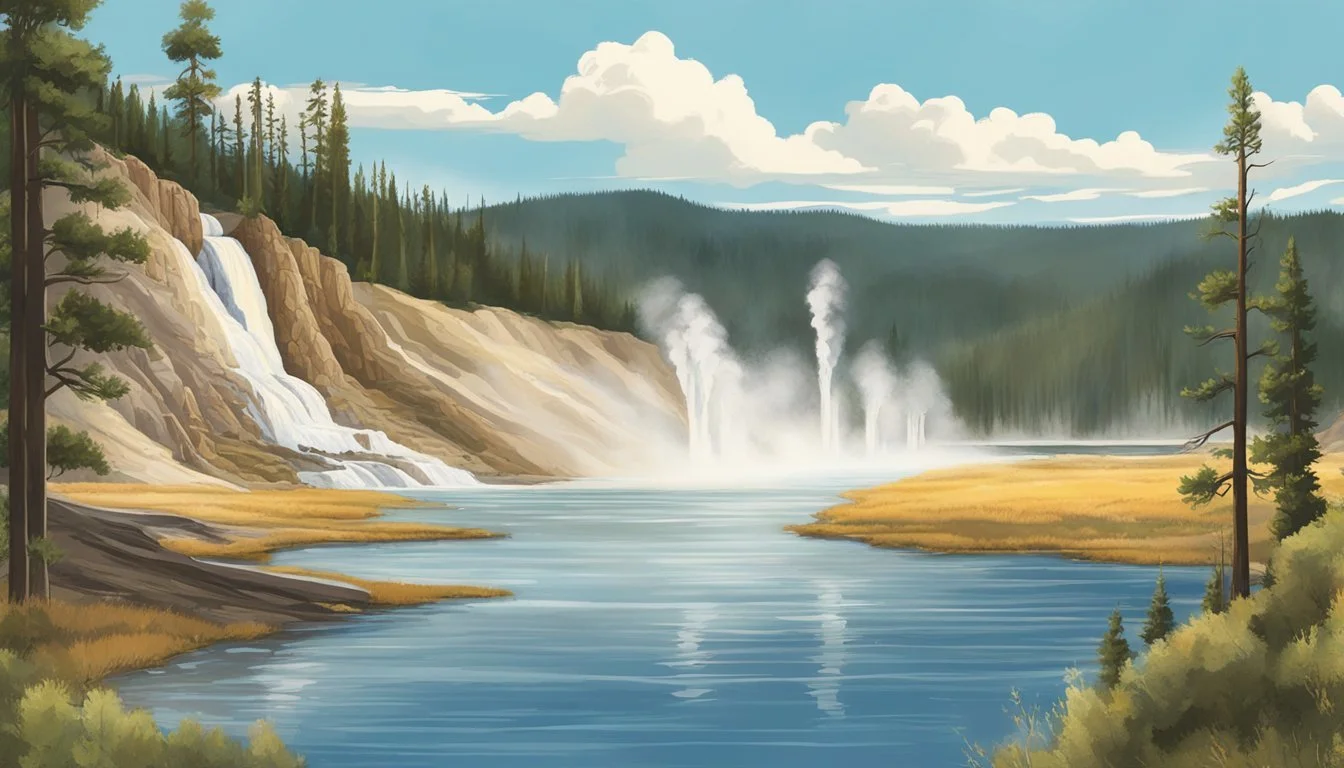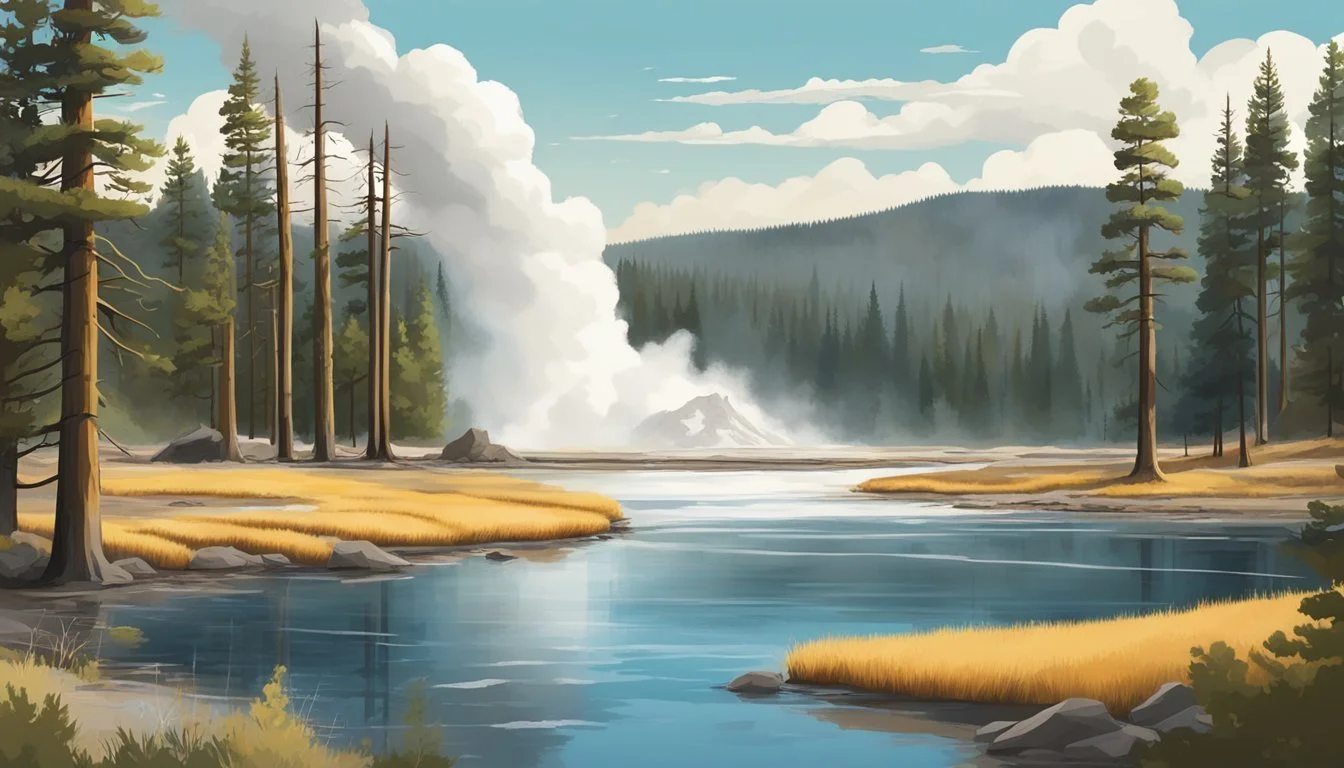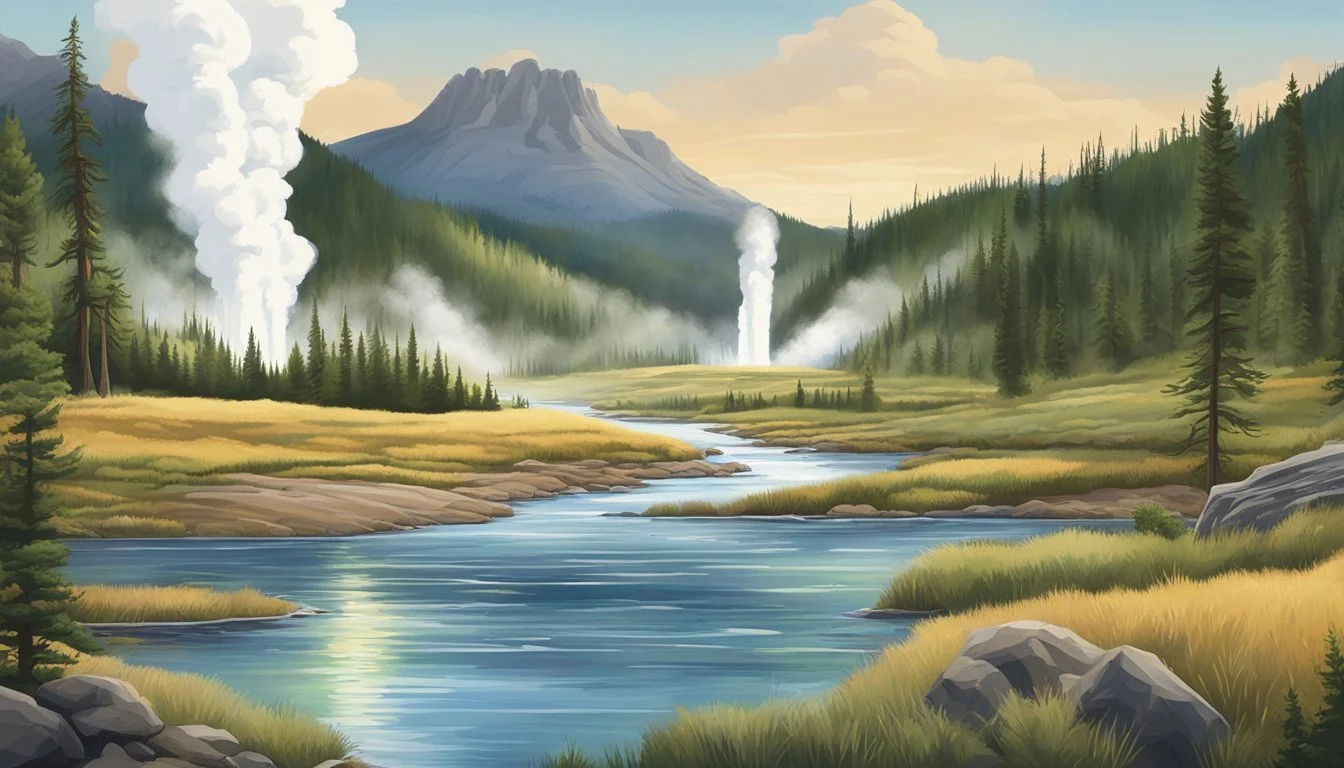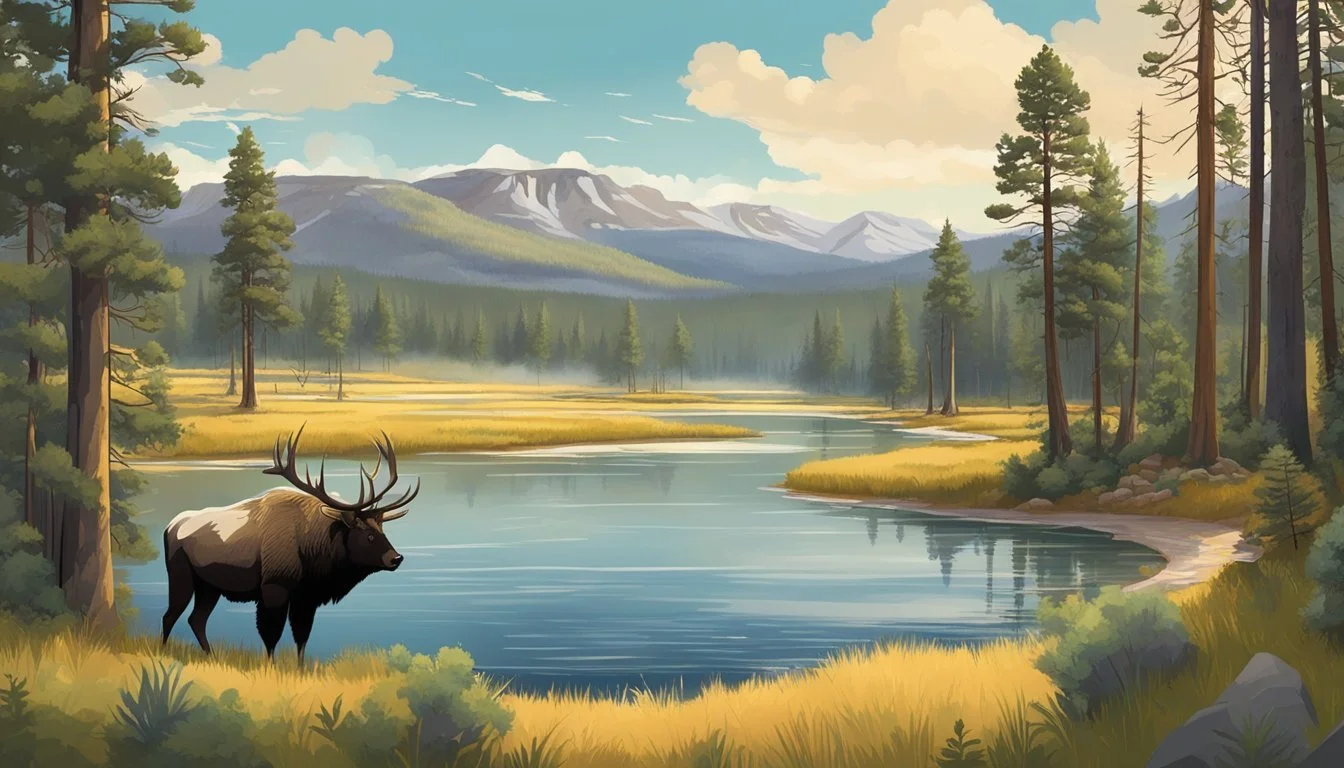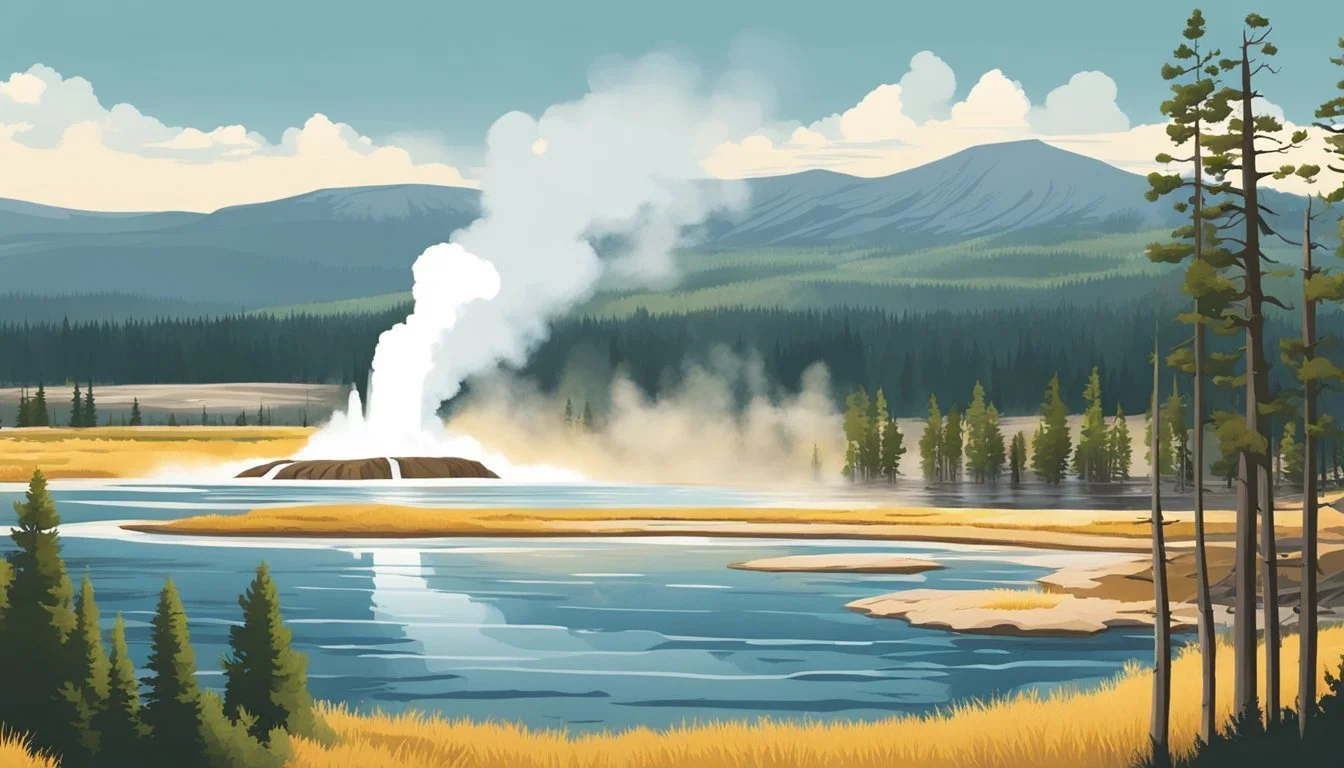Analyzing Yellowstone's Conservative Themes and Wide Appeal
A Look at the Show's Enduring Success
Yellowstone, the hit television series, has captivated audiences with its rugged Western aesthetics and complex narratives. The show's portrayal of traditional values, family dynamics, and land ownership has struck a chord with viewers across America. Yellowstone's conservative themes resonate strongly with Republican audiences, who appreciate its authentic representation of rural life and its challenges.
The series navigates controversial topics like Native American rights, environmental concerns, and generational conflicts without adhering to typical Hollywood conventions. This approach has earned Yellowstone a dedicated following among those who feel underrepresented in mainstream media. Its popularity has sparked discussions about American identity and the changing landscape of rural communities.
While often labeled as conservative, Yellowstone's nuanced storytelling defies simple categorization. The show's exploration of land preservation, tribal sovereignty, and corporate influence adds layers of complexity to its political undertones. This multifaceted approach contributes to Yellowstone's broad appeal, attracting viewers from various backgrounds and ideological perspectives.
Origins and Overview
Yellowstone emerged as a cultural phenomenon, captivating audiences with its portrayal of the modern American West. The series blends family drama, political intrigue, and stunning landscapes to create a unique viewing experience.
Creator Taylor Sheridan's Vision
Taylor Sheridan, the creative force behind Yellowstone, drew inspiration from his Texas upbringing and experiences in rural America. He aimed to depict the complexities of land ownership and the clash between tradition and progress. Sheridan's vision included showcasing the beauty of Montana while exploring the challenges faced by ranching families.
His approach to storytelling focuses on authenticity, avoiding stereotypes and presenting characters with depth and nuance. This commitment to realism has resonated strongly with viewers, particularly those from rural backgrounds.
Plot and Setting of Yellowstone
Set in Montana, Yellowstone centers on the Dutton family, led by patriarch John Dutton. The Duttons own the largest contiguous ranch in the United States, facing constant threats from land developers, Native American reservations, and the national park bordering their property.
The show delves into power struggles, family loyalty, and the preservation of a way of life. Montana's breathtaking scenery serves as more than just a backdrop, becoming a character in its own right. The vast landscapes underscore the importance of land and legacy to the Dutton family.
Yellowstone's plot intertwines personal drama with larger societal issues, including land rights, political corruption, and environmental concerns. This blend of intimate family dynamics and broader themes contributes to the show's wide appeal.
Character Analysis
Yellowstone's characters are complex, flawed individuals navigating challenging circumstances. Their motivations and relationships drive much of the show's drama and appeal.
John Dutton and Family Dynamics
John Dutton, portrayed by Kevin Costner, stands as the patriarchal figure at the center of Yellowstone. His fierce determination to protect his land shapes the entire series.
John's relationships with his children are often strained. He struggles to connect emotionally while maintaining control over the ranch's future. His interactions reveal a man torn between family loyalty and personal ambition.
The Dutton siblings each play distinct roles. Beth's sharp wit and ruthless business acumen contrast with Kayce's more conflicted nature. Jamie's legal expertise proves both an asset and a source of tension within the family.
Representations of Native Americans
Yellowstone offers nuanced portrayals of Native American characters, particularly through Monica and her family. Monica, married to Kayce Dutton, bridges two worlds.
The show explores conflicts between the Broken Rock Reservation and the Dutton ranch. It highlights land disputes, cultural preservation efforts, and the complex history between Native tribes and white settlers.
Thomas Rainwater emerges as a formidable adversary to John Dutton. His character avoids stereotypes, presenting a modern tribal leader adept at navigating politics and business.
Rivalries and Relationships
Yellowstone thrives on its intricate web of alliances and conflicts. The Duttons face threats from developers, politicians, and rival ranchers.
Romantic relationships add depth to characters. Rip and Beth's tumultuous romance contrasts with Kayce and Monica's more grounded partnership. These dynamics often intersect with broader ranch conflicts.
Luke Grimes' portrayal of Kayce Dutton exemplifies the show's exploration of divided loyalties. His character straddles the line between his Dutton heritage and his life with Monica on the reservation.
Themes and Motifs
Yellowstone weaves together complex themes that resonate with viewers across the political spectrum. The show explores tensions between tradition and change, family loyalty, and the preservation of a threatened way of life.
Conservative Values and Political Overtones
Yellowstone portrays traditional conservative values through its depiction of the Dutton family. The show emphasizes the importance of hard work, self-reliance, and protecting one's heritage. John Dutton embodies these ideals as he fights to maintain his family's legacy and way of life.
The series touches on political issues like government overreach and property rights. It often presents a skeptical view of outside interference in local affairs. This perspective aligns with conservative critiques of federal authority.
Yellowstone also explores the complexities of tribal sovereignty and Native American rights. While not exclusively conservative, these themes appeal to viewers interested in local governance and cultural preservation.
Land Ownership and Preservation
The struggle over land ownership forms a central conflict in Yellowstone. The Dutton family's efforts to protect their ranch from developers and outside interests resonate with rural audiences. This theme taps into concerns about the loss of agricultural land and traditional lifestyles.
The show highlights the emotional and cultural significance of land beyond its monetary value. It portrays the ranch as a living legacy, connecting generations and preserving a distinct way of life.
Environmental conservation emerges as a complex issue. The Duttons aim to preserve their land, but often clash with environmental regulations. This nuanced approach reflects real-world tensions between landowners and conservationists.
Duality of Progress and Tradition
Yellowstone explores the clash between modern development and traditional ways of life. The show presents progress as a double-edged sword, bringing economic opportunities but threatening established customs.
Characters grapple with changing social norms and technologies. Younger generations often find themselves torn between embracing new opportunities and upholding family traditions.
The series depicts the challenges of maintaining cultural identity in a rapidly changing world. This theme resonates with viewers who feel nostalgia for perceived simpler times or fear the loss of cultural heritage.
Cultural Impact
Yellowstone has made significant waves in American popular culture, resonating with viewers across political divides. The show's portrayal of traditional values and masculine ideals has sparked discussions about its broader societal influence.
Yellowstone's Appeal across Red and Blue States
Yellowstone has achieved remarkable popularity among diverse audiences. The series attracts viewers from conservative-leaning states and liberal urban centers alike. Its themes of family, land ownership, and rural life resonate strongly with Red State audiences.
At the same time, the show's high production values and complex characters draw in viewers from across the political spectrum. This broad appeal has contributed to Yellowstone's status as a cultural phenomenon.
The show's nuanced portrayal of Native American issues and environmental concerns also adds layers that appeal to more progressive viewers. This multifaceted approach allows Yellowstone to bridge cultural divides in its viewership.
Representation of Masculinity and Patriarchy
Yellowstone prominently features traditional masculine archetypes and patriarchal family structures. The character of John Dutton embodies a rugged, authoritative father figure who fiercely protects his family and legacy.
This portrayal of masculinity has struck a chord with many viewers, particularly those who value traditional gender roles. The show's male characters often display traits associated with classic Western heroes - strength, stoicism, and a code of honor.
However, Yellowstone also explores the complexities and potential downsides of these masculine ideals. Characters grapple with the emotional toll of maintaining a tough exterior and the challenges of patriarchal power dynamics.
The series presents female characters who navigate and sometimes challenge these patriarchal structures, adding depth to its exploration of gender roles in rural American culture.
Narrative Techniques
Yellowstone employs sophisticated narrative techniques to engage viewers and explore complex themes. The show interweaves historical perspectives with modern conflicts while developing multifaceted characters.
Storytelling through a Historical Lens
Taylor Sheridan's writing draws on the rich history of the American West. Yellowstone connects past and present, showing how historical events shape current conflicts. The show references real historical figures and events, grounding its fictional narrative in authentic cultural contexts.
The prequel series 1883 further explores this historical angle, providing backstory for the Dutton family's roots in Montana. This approach adds depth to the main storyline and appeals to viewers interested in American history.
Sheridan uses flashbacks strategically to reveal character motivations and explain present-day tensions. These glimpses into the past often highlight the cyclical nature of family conflicts and land disputes in the region.
The Significance of Duality in Character Development
Yellowstone's characters exhibit striking dualities, reflecting the complex moral landscape of the modern West. John Dutton embodies this duality as both a protective patriarch and a ruthless businessman. His actions often blur the line between right and wrong.
Other characters display similar contradictions. Beth Dutton's fierce loyalty to family contrasts with her cutthroat business tactics. Kayce struggles between his Dutton heritage and his wife's Native American culture.
This nuanced approach to character development creates relatable, flawed individuals. It challenges viewers to consider multiple perspectives on issues like land ownership, family loyalty, and cultural preservation.
Reception and Success
Yellowstone has become a cultural phenomenon, achieving impressive ratings and critical acclaim. The show's popularity has grown steadily since its debut, cementing its place as a standout series in the television landscape.
Ratings and Viewership
Yellowstone's ratings have soared since its premiere on Paramount Network. The show's fifth season debut in November 2022 drew 12.1 million viewers, making it the most-watched scripted series premiere of the year. This marked a significant increase from the 2.8 million viewers who tuned in for the series premiere in 2018.
The show's audience has grown consistently each season, with live viewership and streaming numbers both contributing to its success. Yellowstone has become Paramount Network's flagship series, often outperforming major broadcast network shows in key demographics.
Critical Reception and Prestige TV Comparisons
While Yellowstone initially received mixed reviews from critics, its reputation has improved over time. The series has earned praise for its cinematography, performances, and exploration of complex themes related to land ownership and family dynamics.
Some critics have compared Yellowstone to prestige TV dramas like Succession and Game of Thrones, noting similarities in their focus on power struggles and family conflicts. However, Yellowstone's Western setting and more conservative themes set it apart from many other critically acclaimed series.
The show has garnered several award nominations, including Golden Globe and Screen Actors Guild nods for Kevin Costner's lead performance. Its success has sparked discussions about the definition of prestige TV and the value of shows that resonate with audiences outside traditional coastal media markets.
Contemporary Issues
Yellowstone tackles several pressing social and political themes that resonate with modern audiences. The show explores corporate influence, changing rural landscapes, and complex racial dynamics.
Corporate Greed and Gentrification
Yellowstone portrays the ruthless tactics of big business encroaching on rural land. Corporate developers aim to transform the Montana landscape for profit, threatening local livelihoods and traditions.
The Dutton family fights to preserve their ranch against these forces of change. Their struggle highlights tensions between economic progress and cultural preservation.
Gentrification emerges as wealthy outsiders buy up property, driving up costs for longtime residents. This influx alters community dynamics and strains local resources.
The show depicts how rural areas grapple with urban expansion and tourism development. It raises questions about land use, economic disparities, and the changing face of the American West.
Native American Women and Critical Race Theory
Yellowstone features strong Native American women characters who challenge stereotypes. These portrayals offer nuanced perspectives on indigenous experiences in modern America.
The show touches on issues like missing and murdered indigenous women. It highlights systemic injustices faced by Native communities.
Critical race theory concepts emerge through storylines about land rights and tribal sovereignty. The series explores historical conflicts between Native tribes and white settlers.
Yellowstone examines how these past injustices continue to shape present-day relationships. It depicts ongoing struggles for Native self-determination and cultural preservation.
The show's treatment of these themes sparks discussions about representation and racial dynamics in contemporary media.
Symbolism
Yellowstone employs powerful symbols to represent traditional values and the changing American West. These symbols evoke nostalgia and highlight cultural tensions.
The Cowboy Hat as an Icon
The cowboy hat stands as a potent symbol in Yellowstone, representing rugged individualism and Western heritage. Characters like John Dutton often don this iconic headwear, reinforcing their connection to ranching traditions.
The hat signifies authority, especially when worn by ranch owners or law enforcement. It also serves as a visual shorthand for the cowboy way of life, emphasizing self-reliance and a deep bond with the land.
In contrast, characters who eschew the cowboy hat often represent outside forces threatening the ranch's way of life. This visual cue helps viewers quickly identify allies and potential adversaries.
Rural Communities and the Gentrification of the West
Yellowstone portrays rural communities as bastions of traditional values, increasingly under siege from gentrification. The show depicts small towns grappling with an influx of wealthy outsiders seeking to reshape the landscape.
Local businesses face competition from upscale developments catering to tourists and transplants. This economic shift threatens long-standing social structures and cultural practices.
The series highlights the tension between preserving rural heritage and embracing economic opportunities. It shows ranchers and longtime residents struggling to maintain their way of life amid rising property values and changing demographics.
Through these themes, Yellowstone taps into real-world debates about land use, economic development, and cultural preservation in the American West.
Character Arcs and Development
Yellowstone's characters undergo significant transformations throughout the series, grappling with personal challenges and family dynamics. Their journeys reflect larger themes of legacy, power, and duty.
Evolution of John Dutton's Role
John Dutton, portrayed by Kevin Costner, anchors the show as the patriarch of the Dutton family. His character arc explores the complexities of maintaining power and preserving a family legacy. John's motivations often blur the lines between empathy and self-interest as he fiercely defends his land and family.
Initially presented as a hardened rancher, John gradually reveals vulnerability in his relationships with his children. His internal struggles become more apparent as he faces threats to his ranch and reconciles with past decisions. This evolution adds depth to his character, making him more relatable to viewers.
Supporting Characters and Their Journeys
The supporting cast in Yellowstone undergoes equally compelling transformations. Kayce Dutton's arc delves into themes of identity and redemption as he navigates between his family obligations and personal aspirations. His wife Monica provides a counterpoint, offering perspectives from outside the Dutton family dynamic.
Beth Dutton's character development is marked by her fierce loyalty and complex relationship with her father. Her journey involves confronting past traumas and forging unexpected alliances. Jamie Dutton's arc explores themes of belonging and ambition, often placing him at odds with his family's interests.
These character journeys contribute to Yellowstone's wide appeal, offering viewers multiple points of identification and engagement with the show's themes.

